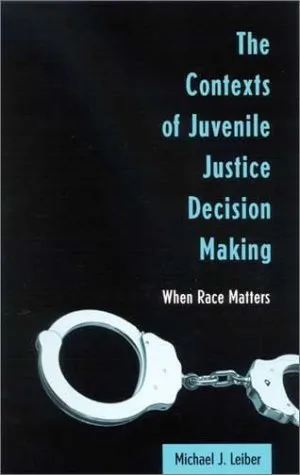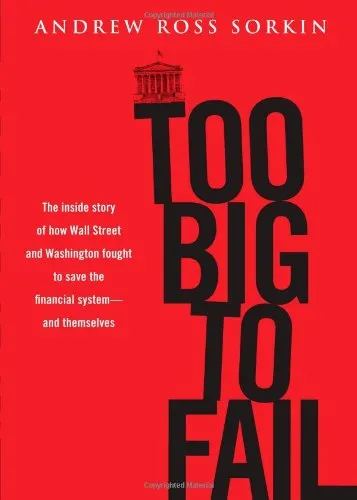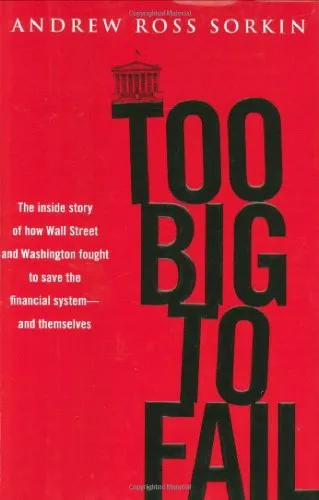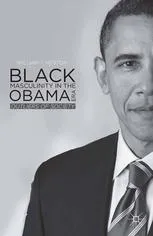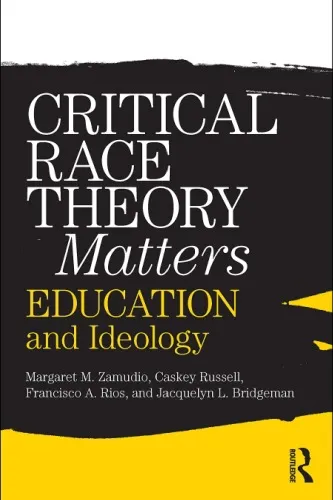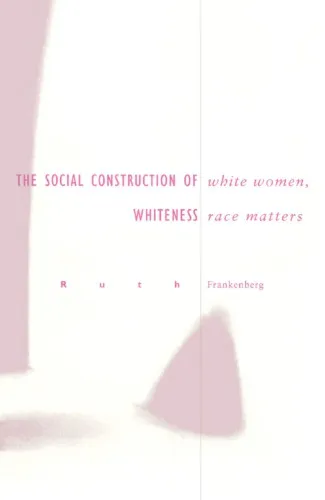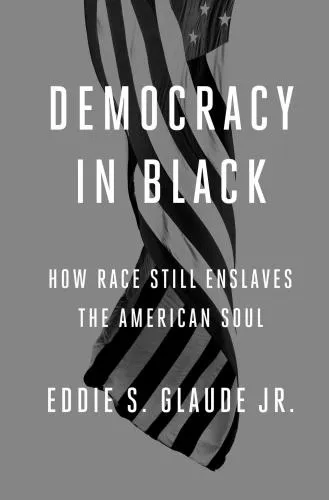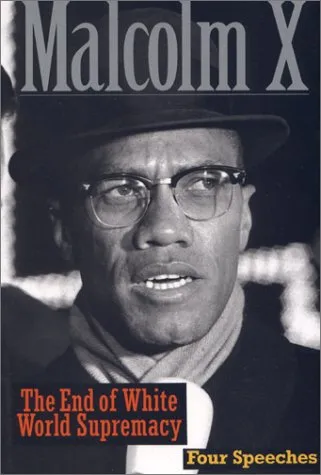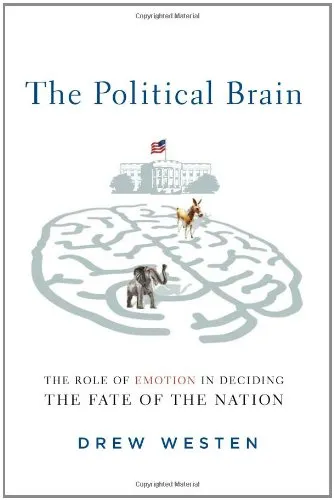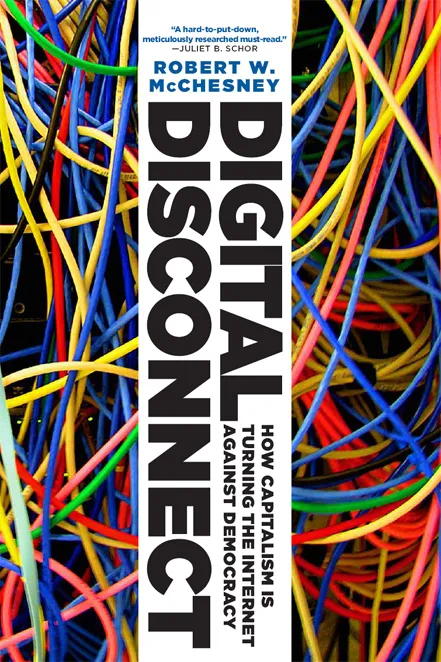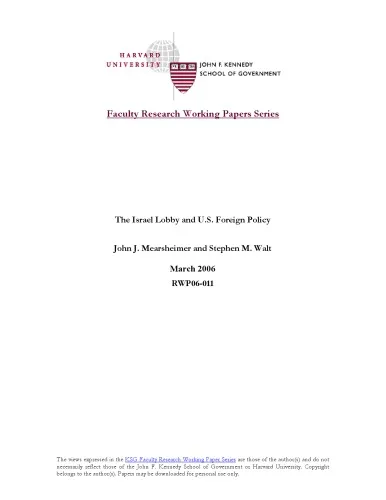The Contexts of Juvenile Justice Decision Making: When Race Matters
4.5
بر اساس نظر کاربران

شما میتونید سوالاتتون در باره کتاب رو از هوش مصنوعیش بعد از ورود بپرسید
هر دانلود یا پرسش از هوش مصنوعی 2 امتیاز لازم دارد، برای بدست آوردن امتیاز رایگان، به صفحه ی راهنمای امتیازات سر بزنید و یک سری کار ارزشمند انجام بدینکتاب های مرتبط:
معرفی کتاب 'The Contexts of Juvenile Justice Decision Making: When Race Matters'
کتاب 'The Contexts of Juvenile Justice Decision Making: When Race Matters' اثری برجسته از مایکل جی. لیبر است که به بررسی تأثیر عمیق مسائل نژادی در نظام عدالت نوجوانان میپردازد. این کتاب از تحقیقات گسترده و تحلیلهای علمی برای برجسته کردن این مسئله استفاده میکند که چگونه نژاد میتواند بر تصمیمگیریها و نتایج پروندههای مرتبط با نوجوانان تأثیر بگذارد.
خلاصهای از کتاب
این کتاب در ابتدا به تاریخچهای مختصر از سیستم عدالت نوجوانان در ایالات متحده و نحوه تغییراتش در طول سالها میپردازد. سپس نویسنده با استفاده از روشهای تحقیقاتی مدرن و متدهای علمی، تأثیر نژاد را در فرآیند تصمیمگیری سیستمهای مختلف عدالت نوجوانان بررسی میکند. در این کتاب، نویسنده استدلال میکند که بایاسهای نژادی نقشی کلیدی در تصمیمگیریهای مربوط به بازداشت، محکومیت، و تعیین مجازات دارند.
از طریق مطالعات موردی و دادههای آماری واقعی، کتاب نشان میدهد که چگونه نوجوانان از اقوام مختلف، به ویژه سیاهپوستان و لاتینتباران، اغلب با رفتار متفاوتی در مقایسه با نوجوانان سفیدپوست روبرو میشوند. این موضوع تنها مختص به رفتار قاضیان نبوده، بلکه شامل کل سیستم میشود، از افسران پلیس گرفته تا مشاوران و سایر مسئولین.
نکات کلیدی کتاب
- نشان دادن تأثیر نژاد در مراحل مختلف فرآیند عدالت نوجوانان.
- تحلیل علمی از دادههای واقعی برای تأیید فرضیههای مربوط به تعصب نژادی.
- ارائه پیشنهاداتی برای بهبود سیستم عدالت با هدف کاهش نابرابریهای نژادی.
- تمرکز بر اهمیت آموزش مسئولین عدالت نوجوانان برای مقابله با بایاسهای ناخودآگاه.
جملات معروف از کتاب
"Race matters because it often dictates how justice is dispensed, especially in cases involving the most vulnerable—our children."
"Equity in juvenile justice does not mean identical treatment; it means fair treatment, which acknowledges and addresses systemic disadvantages."
چرا این کتاب مهم است؟
با توجه به افزایش توجه به عدالت میاننسلی و تأثیرات سیستم عدالت بر گروههای آسیبپذیر، 'The Contexts of Juvenile Justice Decision Making: When Race Matters' یک منبع حیاتی است. این کتاب نه تنها آگاهی عمومی را درباره تأثیر نژاد بر عدالت نوجوانان افزایش میدهد، بلکه سیاستگذاران، حقوقدانان، و پژوهشگران را به سمت اصلاحات سیستماتیک هدایت میکند. تأکید بر تحقیقات دادهمحور و تحلیلهای دقیق آن، این اثر را به یکی از مهمترین منابع در این زمینه تبدیل کرده است.
Introduction to "The Contexts of Juvenile Justice Decision Making: When Race Matters"
Justice systems often aim to ensure impartiality and fairness, yet real-world practices sometimes deviate from these ideals, with race often playing an influential—though unspoken—role. "The Contexts of Juvenile Justice Decision Making: When Race Matters", by Michael J. Leiber, serves as a seminal deep dive into the intersection between race and the decision-making processes in juvenile justice systems. The book explores how social, systemic, and discretionary factors contribute to differential treatment of minority youth. By leveraging data-driven insights, comprehensive research, and critical analysis, this work illuminates a critical area of injustice while offering recommendations for change.
At its core, this book challenges the notion of impartiality in juvenile justice proceedings by delving into the nuanced ways race and ethnicity shape the trajectory of cases, from initial contact with law enforcement to sentencing outcomes. The text not only elaborates on instances of racial disparities but also presents a contextual framework to understand the causal factors behind them. Leiber’s work is particularly notable for its emphasis on the "contexts"—the cultural, institutional, and community-specific conditions—that perpetuate inequities in juvenile justice.
Detailed Summary of the Book
This book spans a range of topics and arguments with one guiding question: "When, why, and how does race matter in juvenile justice decision-making?" Michael J. Leiber offers a well-researched exploration of how race influences treatment at each stage of the juvenile justice process. Through empirical case studies and theoretical analysis, he reveals how decisions made by key actors, including police officers, judges, probation officers, and prosecutors, are shaped by biases—both explicit and implicit.
Some of the central areas the book addresses are:
- Initial contact and arrest decisions, including disparities in detainment.
- Biases in pretrial reports and the influence of racial stereotypes during court hearings.
- The role of social class, gender, and neighborhood in compounding racial inequities.
- The systemic patterns of disparity in sentencing, including the application of stricter punishments to minorities.
Leiber also skillfully critiques structural factors, such as the lack of diversity among professionals in the juvenile system, and how organizational pressures exacerbate racial disparities. He provides practical recommendations aimed at improving equity within the system, such as robust cultural awareness training and implementing standardized decision-making protocols to limit bias.
Key Takeaways
Here are some of the most significant insights from the book:
- Institutional Bias: Disparities are not just the result of individual actions but are embedded within larger systemic structures in the juvenile justice system.
- The Contexts of Decision-Making: Social and community-level factors significantly influence judicial and law enforcement decisions, often disadvantaging minority youth.
- Role of Implicit Bias: Even well-meaning individuals in the system can unconsciously uphold racial disparities due to ingrained stereotypes.
- Policy and Practice Gaps: Policies aimed at promoting fairness often fail in implementation, leading to perpetuated inequalities.
- Solutions and Intervention: Promoting cultural competence, increasing system accountability, and fostering diversity within justice institutions are critical steps toward improvement.
Famous Quotes from the Book
Here are some of the most poignant quotes from "The Contexts of Juvenile Justice Decision Making: When Race Matters":
"Justice is not blind when we fail to adjust for how race shapes outcomes in tangible and often devastating ways."
"The juvenile justice system is not merely a reflection of society’s prejudices but also a mechanism that actively perpetuates them."
"Equality in theory cannot justify inequality in practice. Disparities anywhere in the system call into question its legitimacy everywhere."
Why This Book Matters
"The Contexts of Juvenile Justice Decision Making: When Race Matters" is an essential read for researchers, reform advocates, policymakers, and anyone interested in understanding and addressing inequities in the justice system. By concentrating on the juvenile justice system, it highlights a crucial area where early interventions can disrupt cycles of inequity before they escalate into adult criminal proceedings. Its comprehensive examination of both the micro-level (individual decision-making) and macro-level (organizational and social context) forces sets this work apart as a critical resource for those seeking change.
At a time when conversations about institutional racism are at the forefront, Leiber’s work underscores the need for addressing racial disparities in justice systems as a matter of urgency. The book provides not just an analysis of the problem but also actionable insights into how systems can be reformed to ensure fairness and justice for all.
دانلود رایگان مستقیم
شما میتونید سوالاتتون در باره کتاب رو از هوش مصنوعیش بعد از ورود بپرسید
دسترسی به کتابها از طریق پلتفرمهای قانونی و کتابخانههای عمومی نه تنها از حقوق نویسندگان و ناشران حمایت میکند، بلکه به پایداری فرهنگ کتابخوانی نیز کمک میرساند. پیش از دانلود، لحظهای به بررسی این گزینهها فکر کنید.
این کتاب رو در پلتفرم های دیگه ببینید
WorldCat به شما کمک میکنه تا کتاب ها رو در کتابخانه های سراسر دنیا پیدا کنید
امتیازها، نظرات تخصصی و صحبت ها درباره کتاب را در Goodreads ببینید
کتابهای کمیاب یا دست دوم را در AbeBooks پیدا کنید و بخرید
1360
بازدید4.5
امتیاز0
نظر98%
رضایتنظرات:
4.5
بر اساس 0 نظر کاربران
Questions & Answers
Ask questions about this book or help others by answering
No questions yet. Be the first to ask!
